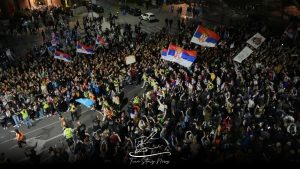On Thursday, European leaders will convene with Ukrainian President Volodymyr Zelensky in Paris, aiming to intensify pressure on Vladimir Putin. This meeting comes in the wake of Putin’s declaration that Russia will continue its military engagement in Ukraine unless a peace agreement is established.
Frustration is mounting among Western leaders, who express concern over what they perceive as the Russian president’s reluctance to negotiate a resolution to the ongoing three-and-a-half-year invasion of Ukraine.
The upcoming summit, co-chaired by the leaders of France and the UK, is set to solidify plans regarding security guarantees for Ukraine in the event of a ceasefire, while also seeking to clarify the extent of US involvement.
Russia has dismissed these assurances with contempt, as President Putin has stated that Moscow is prepared to “resolve all our tasks militarily” if an agreement is not reached.
French President Emmanuel Macron stated on Wednesday evening, alongside Ukrainian President Zelensky, that “We are ready, we the Europeans, to offer the security guarantees to Ukraine and Ukrainians the day that a peace accord is signed.”
Macron stated that the specifics of the guarantees were “extremely confidential,” yet confirmed that the “preparation was completed” during a prior meeting of defence ministers.
European leaders have remained reticent regarding the specifics of the guarantees, anticipated to encompass the deployment of European troops to Ukraine, alongside training and “backstop” support from the United States.
Zelensky expressed confidence that Kyiv’s allies would intensify efforts to compel Russia to pursue a diplomatic resolution.
He further stated, “Unfortunately, we have not yet seen any signs from Russia that they want to end the war.”
In a statement issued just hours before the commencement of the talks, Russia’s foreign ministry declared that the proposed guarantees for Ukraine were “absolutely unacceptable.”
Maria Zakharova, the ministry spokeswoman, expressed her views during an economic forum in Russia’s far east, stating, “They are not guarantees of Ukraine’s security; they are guarantees of danger to the European continent.”
She stated that Russia would not entertain the idea of deploying foreign troops in Ukraine “in any format.”
The partnership between Europe and the United States
In a recent interview with the French magazine Le Point, conducted before the summit, Zelensky expressed concerns that European security guarantees “might not be enough” to deter Putin from initiating a new conflict.
“An alliance between Europe and the United States is essential,” he stated.
Following the summit, phone discussions are set to take place with US President Donald Trump, commencing at 1200 GMT, followed by a press conference scheduled for 1300 GMT.
The event occurs in the wake of Putin’s prominent visits to China and the United States.
During a speech on Wednesday in Beijing, where he was present at a grand military parade with Chinese President Xi Jinping, Putin praised the advancements made by his forces in Ukraine.
He stated that Russian forces were making progress on “all fronts” and had significantly weakened Ukraine’s military to the point where it could no longer launch an offensive.
In a striking display of diplomacy, Putin was seen shaking hands and engaging in conversation with Xi and North Korean leader Kim Jong Un as they made their way down a red carpet near Tiananmen Square.
In a notable diplomatic gesture last month, Trump welcomed Putin to Alaska with a red carpet. However, the discussions that followed did not result in any significant advancements.
Trump has suggested that the United States may support any European-led peacekeeping initiative, yet he has ruled out the deployment of American troops to Ukraine.
‘War criminal’
European leaders are increasingly frustrated with Putin, intensifying their criticism and cautioning that the conflict in Ukraine may extend for several more months.
German Chancellor Friedrich Merz declared on X on Tuesday that “Putin is a war criminal.”
“He stands out as one of the most egregious war criminals of our era, with actions that have garnered widespread attention.” It is imperative to establish a firm stance on the treatment of war criminals: any notion of leniency is entirely inappropriate in this context.
Last month, Macron referred to Putin as “an ogre at our gates,” while Defence Minister Sebastien Lecornu remarked that Russia might persist in its war against Ukraine “for as long as it can.”
In a recent interview with French daily Le Parisien, Lecornu remarked, “In a Soviet KGB culture, buying time and deceiving one’s partners and adversaries is part of a well-known Russian strategy,” alluding to the primary security agency of Moscow’s predecessor state.











